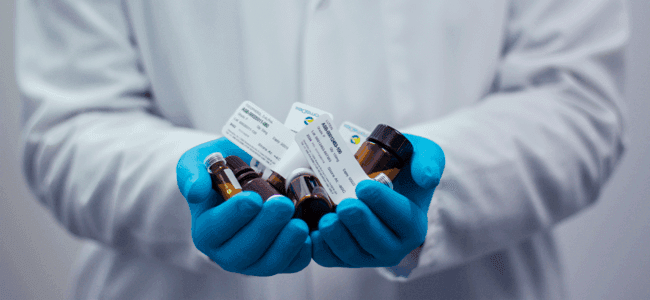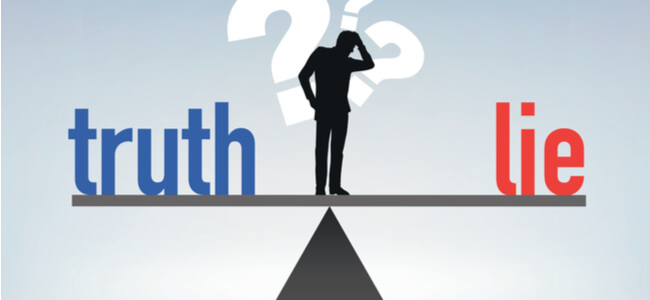What Types of DNA Tests are Available?

There are various reasons why you may want to have your DNA examined and analyzed.
You could be interested in tracing your family lineage, or you may simply want to find out if you are related to a certain person.
DNA tests generally produce highly reliable results and have helped vast numbers of families over the years.
Going to an official DNA testing facility would give the best chance of getting results that haven’t been tampered with in any way.
What some people may not know is that there are different types of DNA tests available, created to give us information about a diverse range of things.
Each of the tests on the market examines a different part of your DNA.
There are three main DNA tests, which are:
- Y-chromosome (Y-DNA)
- Mitochondrial DNA (mtDNA)
- Autosomal DNA (atDNA)
Before you choose which one will best suit your needs, you should find out what each of the options does. Here is everything you need to know before making a decision.
Y-DNA Tests
- Y-chromosome
- Paternal ancestry
- Common ancestor
Y-DNA Tests are for men only as they test the Y-chromosome, which is only present in males.
This exists on the 23rd pair of chromosomes, where men have one X and one Y chromosomes. Females have two X-chromosomes here. This type of DNA test is used to trace a man’s patrilineal ancestry.
The chromosome is virtually unchanged as it passes down from father to son.
The Y-DNA test compares a man’s DNA test with another man’s to find out when the most recent common ancestor was.
This type of DNA test has various applications and is extremely useful for people with the same surname.
These groups can get together and take the test to find out at which point in their family history they shared a common ancestor.
If a woman wants to trace her paternal line, she can ask her father, grandfather, uncle, or a male cousin to take the Y-DNA test for her.
mtDNA Tests
- Mitochondrial DNA
- Maternal ancestry
- Common ancestor in 1-50 generations
Mitochondrial DNA (mtDNA) testing is used to find a common maternal ancestor.
The mitochondrion is part of a human cell which contains its own DNA.
The DNA found here has 16,569 base pairs, and this form of DNA is passed down from mother to child.
It can be examined to find a shared ancestry between one and fifty generations ago.
This type of DNA test can also be used to match people to a specific haplogroup or subclade, which can in turn be linked to a common geographical origin, thus representing the movements of the test taker's ancestors.
atDNA Tests
- Autosomal DNA
- Identify markers
- Family traits
Yet another way to check DNA is autosomal DNA (atDNA) testing, which focuses on the 22 pairs of chromosomes that aren’t associated with a person’s sex. This set of DNA recombines every generation because everyone gets a set from each of their parents.
People have a random mix of DNA segments which have been passed down from their ancestors.
This type of DNA test can be used to search for markers and family traits.
For example, it may be used as a way to identify certain inherited illnesses or conditions.
Anyone who takes an atDNA test will have their results compared to everyone else who has taken one on the company’s database.
Participants are then presented with a list of people to whom they may be related based on the amount of DNA they share.
This type of DNA test is used to match people on all their ancestral lines, and aren’t just limited to maternal or paternal lineage. Matches for this can go up to six generations back.
X-DNA Tests
- Part of autosomal DNA testing
- Useful for inheritance patterns
X-DNA is sometimes included in the type of DNA test that looks atDNA, as it examines the same chromosomes.
This kind of testing looks specifically at the X-chromosome, which is present in both males and females.
Males receive an X-chromosome from their mothers only, while females receive one X-chromosome from each parent.
Examining this chromosome, there is the possibility to spot specific inheritance patterns for traits or illnesses which could be passed down to men or women from their ancestors.
X-DNA testing can be extremely useful for narrowing down the search when it comes to tracing your family tree.
This is because it allows you to isolate a common ancestor to a certain branch of the tree.
Ethnic Makeup DNA Tests
- Discover biogeographical makeup
- Ancestral population clusters
- Accuracy varies
Homo sapiens is a historically nomadic species, traveling every country and continent in the world.
Throughout the ages, various tribes and peoples have moved and migrated to different places and set up new homes there.
For this reason, everyone in the world is made up of varying percentages of different races and can trace their lineage back to numerous diverse geographical regions.
Admixture autosomal DNA tests are a way to discover this type of information.
This data provides a prediction of biogeographical makeup. The results often come with a map with the various ancestral locations highlighted for participants to see easily.
These tests are an accurate way of finding out the various continents ancestors hailed from, but they are far less accurate when it comes to zeroing in on sub-regional levels.
These lists are constantly updated as well, as the database increases in size.
Testing companies will release their results in different ways. For example, they can have differing regional breakdowns over diverse time periods.






